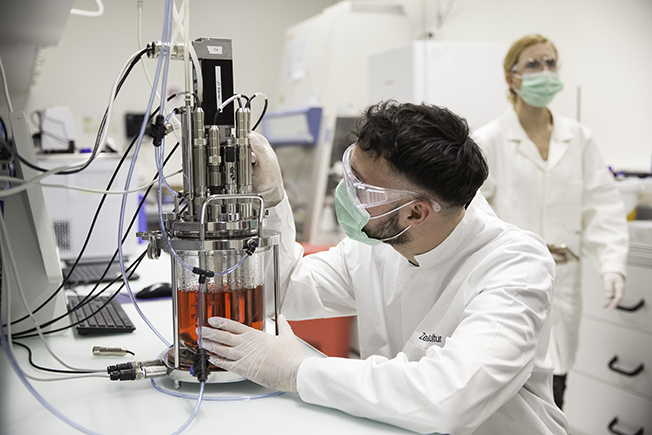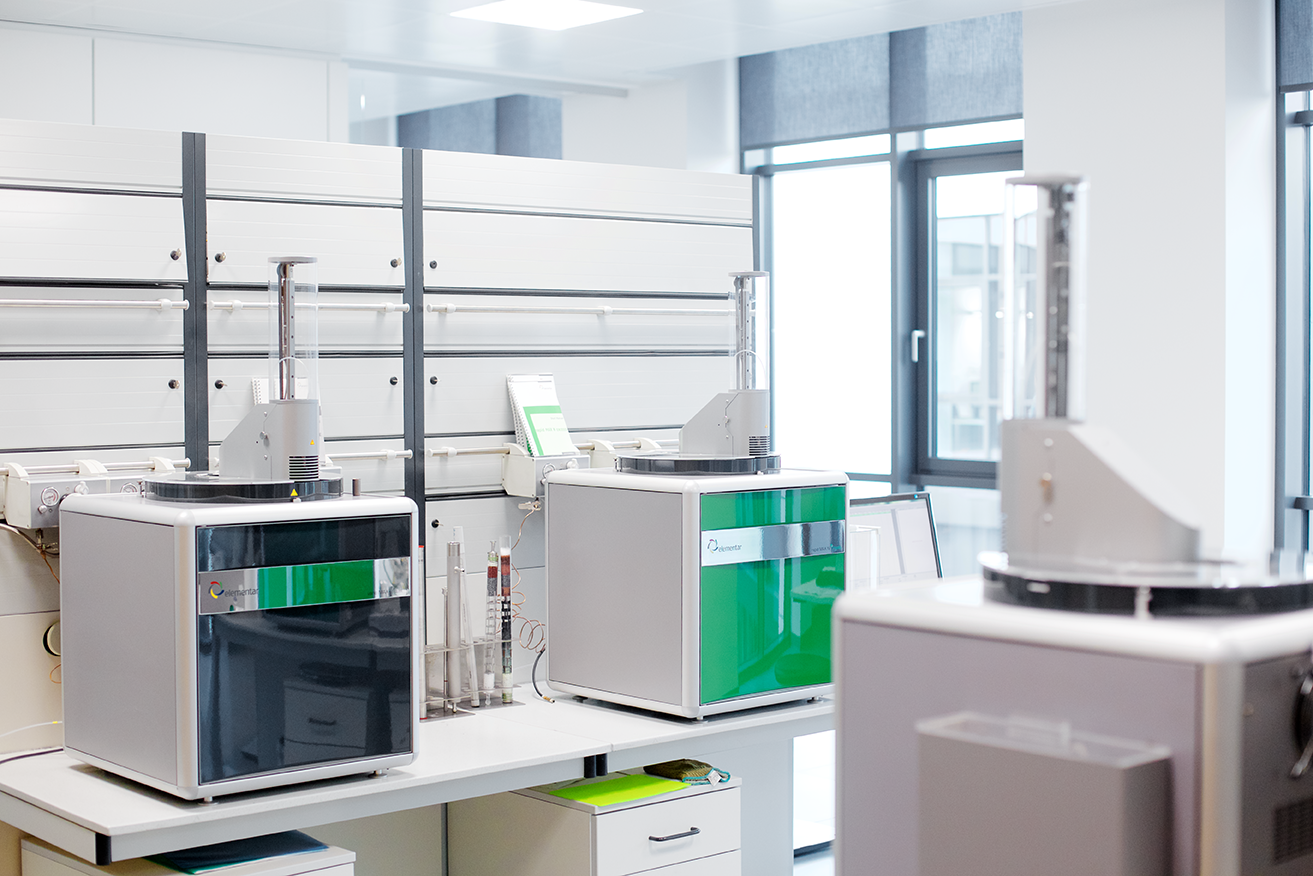

The complete package
The processing and packaging solutions specialist, MULTIVAC, has long been working in the field of meat substitutes and as a result has developed a full line of solutions to help startups in the sector achieve their production objectives – efficiently, sustainably and profitably
.jpg)
Alternative proteins are booming. But how can you best get started and succeed in this growing market? And which machine solutions for processing and packaging deliver real sustainability and cost-effectiveness? Answers to such questions were provided at the fantastic two-day Future Proteins – Sustainable Processing and Packaging Conference held at MULTIVAC’s Wolfertschwenden HQ on 1-2 February. The event featured experts from research, science and industry.
It’s a market that offers enormous opportunities for both startups and industrial-scale companies. To make a contribution to sustainable food supply, MULTIVAC – as one of the world’s largest suppliers of processing and packaging solutions – is supporting these businesses with a range of complete solutions. Here, we learn exactly how MULTIVAC can support manufacturers of alternative proteins in their journeys.

When did you recognize alt proteins as a serious contender in all areas of the food market? And what is your prognosis for future growth?
We have been supporting our customers for many years in the processing and packaging of vegan substitute products. During this time, we have completed more than 100 projects worldwide. If you look at recent years, you can see that plant-based products have achieved enormous growth. Europe is a pioneer in terms of product diversity – and here there have been an above-average number of product launches. The currently fluctuating sales figures are merely an expression of the ebb and flow in product development, and they are part of the normal process.
By providing targeted support and advice – and customized machines or lines and digital solutions – we want to continue assisting our customers in future with sustainable and efficient food production.
Which solutions do you offer the alternative proteins market?
Manufacturers will find in us a one-stop supplier. We supply both individual machines and complete lines for the processing and packaging of their products. Our product range covers slicing, portioning, packaging, labeling and inspection. We place particular emphasis on comprehensive support and advice, so that we can create for our customers complete solutions, which are sustainable, efficient, and capable of being scaled up to new requirements.

When it comes to packaging materials for alternative proteins, we recommend recyclable mono structures based on a single polymer, such as PE, PP or PET, for example. Or alternatively paper fiber-based packaging materials from our PaperBoard selection – ranging from thermoformable reel-fed materials to pre-cut backing cards and rigid trays. Our aim is to develop packs that maximize the shelf life of the packaged product, preserve the nutrients and reduce the material usage, as well as improving the recyclability of the packs and therefore the eco balance.
A perfect example of how a packaging idea is turned into a product in the supermarket can be illustrated by our solution for a well-known German manufacturer of alternative proteins. Inspired by the joint aim of reducing plastic, a packaging concept was developed that saves about 60% of the usual packaging solution. A corrugated board tray was used, which maintains the required pack rigidity and allows the plastic content to be minimized.
Why does automation of the process stages play such a large role – and how widespread is it now?
Practically every stage in the processing and packaging of products can be automated. Whether or not automation takes place in partial stages or as a complete and integrated solution does, however, depend on the particular application and objective, as well as the individual company’s willingness to invest. We are finding that the trend is increasingly moving toward complete and integrated solutions. One of the crucial factors for this is the reproducibility and consequent process reliability that automation brings. Robots operate very effectively, precisely and consistently – and they are extremely gentle on the products being handled. Line components – which are perfectly tailored to each other and equipped with a single overarching line control – provide the guarantee that an even product flow is maintained in the packaging process, and they also reduce operating errors, as well as saving time and effort.
Important factors include the target output quantity and the speed of production, as well of course as the personnel costs. If the customer knows his products, sales markets and business objectives, a well-founded decision on the degree of automation can easily be made on a joint basis.
What role is played by the digitalization of production?
The added value offered by digitalization lies primarily in the increase in process transparency and efficiency, as well as product security. The systematic capture of data within the individual parts of the process also enables widely ranging analysis to be generated.
At the same time, digitalization opens up the opportunity for automatic documentation of the different processes, and this can make it significantly easier to observe strict industry standards.
Thanks to MULTIVAC Smart Services, we can offer a wide range of applications, which increase machine availability, performance, pack quality, and overall efficiency. Transparent processes and process data in real-time make an important contribution to the efficiency and cost-effectiveness of systems and lines, and this means therefore a significant contribution to sustainability. If equipped with this connectivity, these machines and lines can, for example, provide live consumption figures for power, compressed air and coolant, which are key performance indicators that support customers in recognizing the potential for improvement.
The degree to which digitalization is adopted in a company depends on the individual circumstances and the willingness of the customer to invest in digital processes and technology.
Is automation affordable for start-ups in this sector? What effects can it have on their businesses?
Thanks to the increase in performance and the reduced machine downtime provided by automation, the amortization time can often be limited to a few years. In many respects, this is crucial for those companies in alternative proteins.
As these products are currently more expensive as a rule, it is essential to have highly efficient production to attract price-sensitive customers. In addition to this, shelf life and product protection as a major factor in food safety have an enormous effect on the sustainability balance of a product. This is one aspect that is particularly important to many manufacturers of alternative proteins. There is also the reduced need through automation for trained staff. At a time when manufacturing companies are having great difficulties in attracting trained staff, automation is an enormous help, allowing them to focus on their core expertise of product development.
An outstanding example of the value of automation is provided by the production facility at the Dutch company, Zandbergen World’s Finest Meat, which makes products for Beyond Meat in Europe. The product lines comprise buffer conveyors, centrifuges, handling modules, packaging machines, weighing units, metal detectors and labeling machines. Output quantities of 120 to 160 packs per minute with modified atmosphere ensure that a high level of production output is always achieved. Packaged in 100% recyclable films and marketed with a full wrap label – which offers large material savings over alternative concepts – these products are a glowing example of an efficient and sustainable packaging solution. One or at most two people are required to supervise the entire lines. The high degree of automation and the use of a sustainable packaging concept form a clear competitive advantage.
As these products are currently more expensive as a rule, it is essential to have highly efficient production to attract price-sensitive customers
What specific characteristics are there when producing alt protein products that you, as a manufacturer of machines and lines, have to take into account? And how do these differ from animal-based products?
Each product is unique with different requirements for processing and packaging. When processing vegan cold cuts such as sausages or cheese, for example, you need to be aware these are often stickier, and this present a challenge for the slicer.
The solution is usually unique to the customer and is heavily influenced by the choice of slicer blade. Factors such as the serration and coating can have a positive effect on the slicing quality.

And when packaging the products, there are crucial differences between alternative proteins and other types of products. Raw meat, for instance, is often packed in what we refer to as modified atmosphere packaging (MAP). In the case of modified atmosphere packaging, the machine introduces a modified atmosphere into the pack prior to sealing, and this is mostly a mixture of carbon dioxide, nitrogen and oxygen.
This extends the shelf life of the product without the use of chemicals. This is also necessary to ensure that the meat takes up and maintains an attractive and appetizing red color in the pack. Manufacturers of vegan steak alternatives, on the other hand, do not need any oxygen gas flushing. They operate mostly with a red colorant made, for instance, from beetroot. The alternative protein product therefore has a longer shelf life while gas flushing is not necessary.
Ultimately, good advice is the crucial key to success for an efficient process, product security as well as a long shelf life. It is important, in conjunction with the customer, to develop and implement a processing and packaging concept that considers the particular properties of the product, as well as ensuring that the required output quantity is achieved.
For more information about MULTIVAC products, please click here
If you have any questions or would like to get in touch with us, please email info@futureofproteinproduction.com


%20ILVO%202.jpg)

.png)

